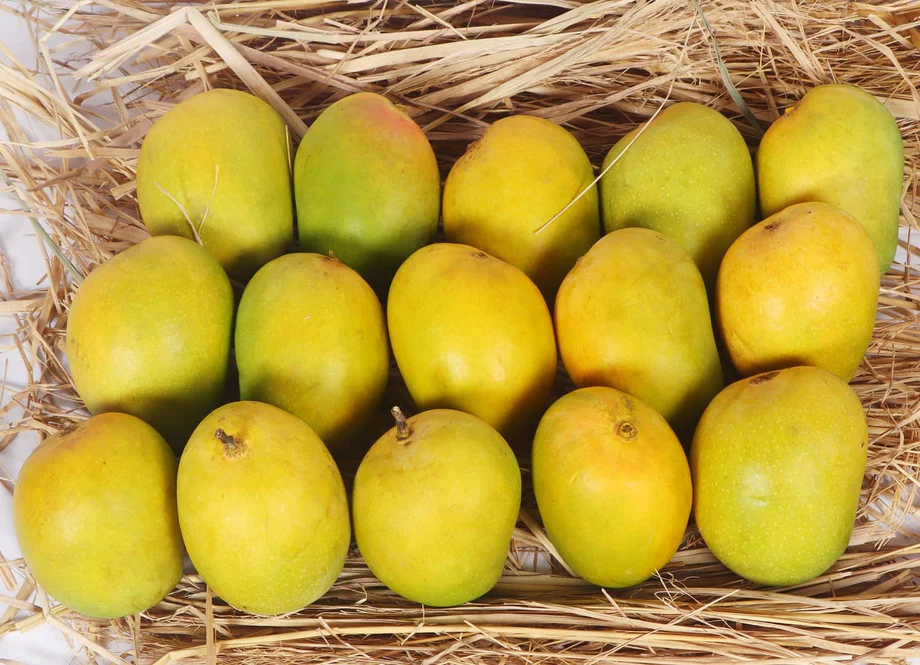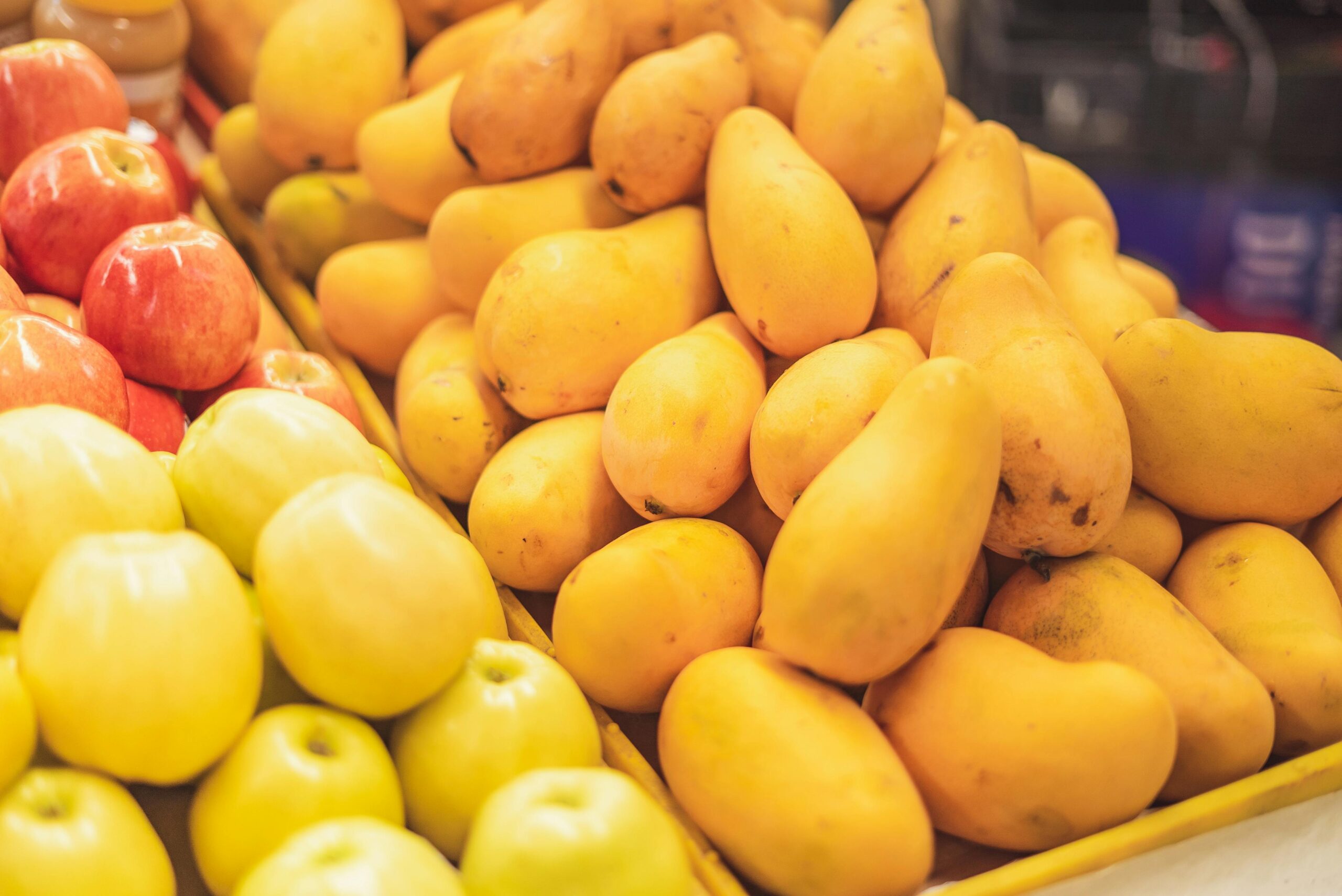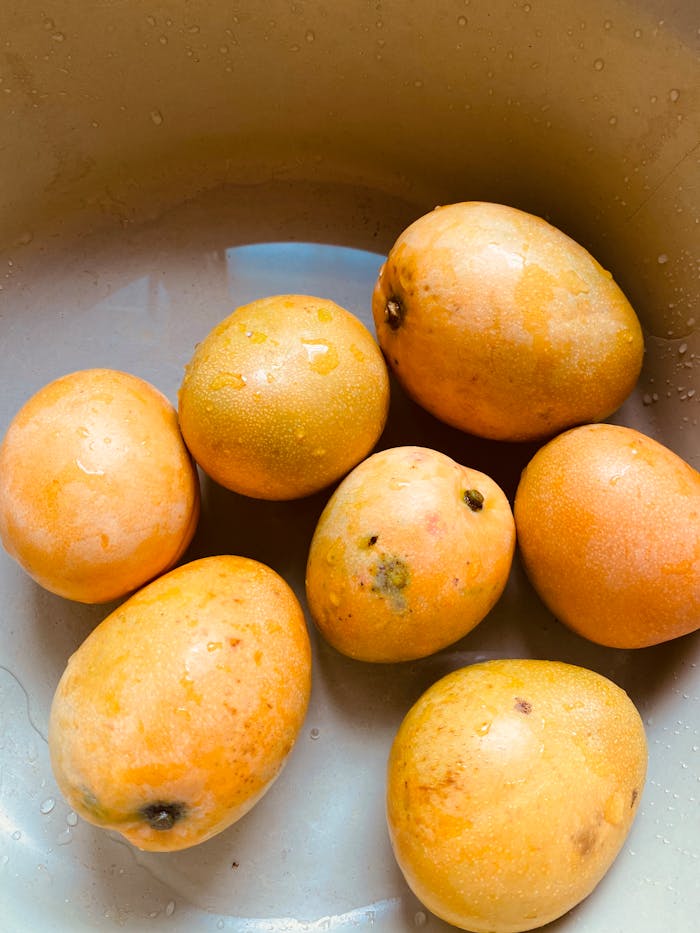Premium Hapus Ratnagiri
The Alphonso mango, affectionately known as Hapus, is a treasure of the Ratnagiri region in Maharashtra, India. Celebrated for its rich flavor, creamy texture, and aromatic sweetness, this mango variety has garnered a global fanbase.
However, the journey of Hapus mangoes from the orchards of Ratnagiri to consumers’ tables is fraught with challenges, particularly concerning authenticity and quality assurance.
The Essence of Ratnagiri Hapus Mangoes
The Hapus mango is not just a fruit; it represents a cultural heritage and a livelihood for many farmers in the Ratnagiri district. This region, blessed with unique climatic conditions and fertile red soil, produces some of the finest mangoes in the world. The combination of the salty breeze from the Arabian Sea and the region’s specific soil composition contributes significantly to the exceptional quality of Ratnagiri Hapus mangoes.
Despite the mango’s popularity, the farmers face significant hurdles. The introduction of the Geographical Indication (GI) tag in 2018 was intended to protect the authenticity of Hapus mangoes, yet rampant adulteration remains a pressing issue.
Many consumers unknowingly purchase inferior mangoes that are falsely marketed as Hapus, undermining the hard work of genuine farmers. This situation not only affects the farmers’ livelihoods but also tarnishes the reputation of the Hapus mango itself.
The Role of Alphonsomango.in
Amid these challenges, Alphonsomango.in stands out as a beacon of hope for both consumers and farmers. By providing a platform dedicated to authentic Ratnagiri Hapus mangoes, Alphonsomango.in ensures that customers receive only the highest quality fruit directly from the orchards.
The website emphasizes transparency and traceability, allowing customers to know exactly where their mangoes come from.Through initiatives like QR code tracking, Alphonsomango.in empowers consumers to verify the authenticity of their purchases.
This not only helps in combating the issue of adulteration but also supports the local farmers by ensuring they receive fair prices for their hard work.
By choosing to buy from Alphonsomango.in, customers are not just indulging in a delicious mango; they are also supporting the farmers who dedicate their lives to cultivating this exquisite fruit.
Why Choose Ratnagiri Hapus?
When it comes to choosing between Ratnagiri and other varieties of Alphonso mangoes, the unique characteristics of Ratnagiri Hapus make it a superior choice.
Known for its rich, non-fibrous flesh and exceptional sweetness, Ratnagiri Hapus mangoes are often considered the gold standard. The distinct flavor profile and creamy texture set them apart, making them a preferred choice among mango enthusiasts worldwide.Moreover, the limited availability of Hapus mangoes, primarily during the months of April and May, adds to their allure. This seasonal rarity, combined with the dedication of farmers to maintain high standards of quality, ensures that every bite of a Ratnagiri Hapus mango is a delightful experience.
Conclusion
The Ratnagiri Hapus mango is more than just a fruit; it is a symbol of the region’s agricultural heritage and a testament to the hard work of its farmers.
With the support of platforms like Alphonsomango.in, consumers can enjoy the authentic taste of Hapus mangoes while contributing to the sustainability of local farming communities. By prioritizing quality and authenticity, Alphonsomango.in is not just selling mangoes; it is fostering a connection between consumers and the rich agricultural traditions of Ratnagiri.
Choosing Ratnagiri Hapus mangoes from Alphonsomango.in means indulging in a truly exquisite fruit while supporting the livelihoods of those who bring it to your table.
Blog 2
How can I ensure the authenticity of Hapus mangoes when buying online
To ensure the authenticity of Hapus mangoes when buying online, it’s essential to follow several key guidelines that can help you distinguish genuine products from imitations. Here are some effective strategies:
1. Look for Geographical Indication (GI) Certification
One of the most reliable indicators of authenticity is the Geographical Indication (GI) tag, which certifies that the mangoes originate from specific regions known for their quality.
For Hapus mangoes, this includes Ratnagiri and Devgad in Maharashtra. When shopping online, check if the seller provides information about GI certification, which is a mark of quality and authenticity.
2. Examine the Seller’s Reputation
Buy from reputable online vendors who specialize in fruit sales, particularly those known for their Hapus mangoes.
Websites like Alphonsomango.in focus on delivering authentic products directly from farmers, ensuring quality and traceability.
Research customer reviews and ratings to gauge the seller’s reliability and product authenticity.
3. Assess the Appearance and Packaging
Genuine Hapus mangoes should have a distinctive golden-yellow color with a slight blush. They typically weigh between 150 to 300 grams and have a smooth, non-wrinkled skin.
Packaging should also reflect quality, ideally including labels that indicate the mangoes are GI certified. Avoid purchasing mangoes that appear overly shiny or have irregular coloring, as these may indicate artificial ripening.
4. Check for Aroma and Texture
Authentic Hapus mangoes emit a sweet, tropical fragrance that intensifies as they ripen. When you receive the mangoes, gently press them; they should yield slightly without being mushy. If the mango lacks a robust aroma or has a fibrous texture, it may not be genuine.
5. Verify the Harvest Season
Hapus mangoes have a limited harvest season, typically from late March to early June.
Be cautious of sellers offering Hapus mangoes outside this timeframe, as they are likely to be imitations. Ensure that the mangoes you are purchasing align with this seasonal availability.
6. Utilize QR Codes for Traceability
Some reputable sellers now include QR codes on their packaging, which allow consumers to trace the origin of their mangoes back to the farm.
Scanning the QR code can provide you with detailed information about the mango’s source, ensuring its authenticity and quality.
Conclusion
By following these guidelines, you can confidently purchase authentic Hapus mangoes online. Prioritizing reputable sellers, checking for GI certification, and being mindful of the mangoes’ appearance, aroma, and seasonality will enhance your chances of enjoying the true flavors of this beloved fruit.
Always remember that genuine Hapus mangoes are not just a treat; they are a celebration of quality and tradition that supports local farmers and their communities.


